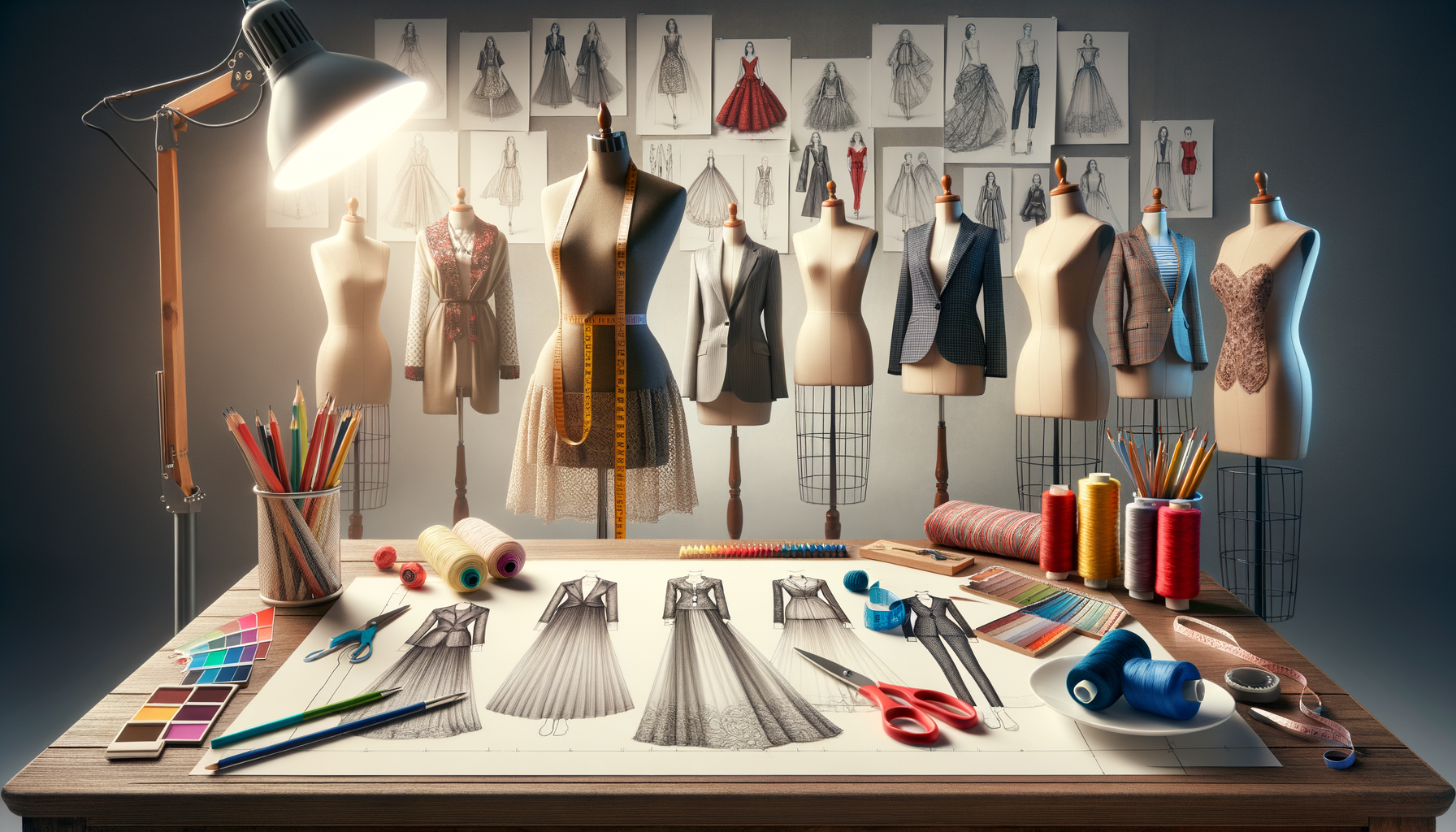Introduction to Fashion Design Courses
Fashion design courses offer a gateway to the vibrant and ever-evolving world of fashion. These courses are designed to equip aspiring designers with the skills, knowledge, and creativity needed to thrive in the competitive fashion industry. From understanding textiles to mastering the art of sketching, fashion design courses cover a wide range of topics that are essential for anyone looking to make a mark in fashion.
In today’s fashion landscape, where trends change rapidly, having a solid educational foundation is crucial. Whether you’re interested in haute couture or ready-to-wear fashion, these courses provide the tools to turn your creative visions into reality. Let’s delve into the various aspects of fashion design courses and uncover what makes them indispensable for budding designers.
Core Curriculum of Fashion Design Courses
The core curriculum of fashion design courses is meticulously crafted to cover every facet of the fashion industry. Students are introduced to the fundamentals of design, which include color theory, fashion illustration, and pattern making. These foundational skills are vital for any designer aiming to create cohesive and visually appealing collections.
Moreover, courses often include modules on fashion history, providing students with an understanding of the evolution of fashion trends and styles over the centuries. This historical perspective is invaluable, as it allows designers to draw inspiration from past eras while innovating for the future.
- Textile Studies: Understanding different fabrics and materials.
- Fashion Illustration: Developing sketching skills to bring ideas to life.
- Pattern Making: Learning to create patterns for garment construction.
- Fashion History: Exploring the evolution of fashion through the ages.
By covering these areas, fashion design courses ensure that students have a comprehensive understanding of the field, preparing them for various roles within the industry.
Specialization Options in Fashion Design
Fashion design courses often offer specialization options, allowing students to tailor their education to specific interests within the fashion industry. These specializations can range from menswear and womenswear to accessories and textile design.
For instance, a student interested in sustainable fashion might choose to focus on eco-friendly design practices. This specialization would cover topics such as sustainable materials, ethical production methods, and the impact of fashion on the environment. On the other hand, someone drawn to the business side of fashion might opt for courses in fashion marketing and merchandising, where they learn about brand management, consumer behavior, and retail strategies.
The ability to specialize enables students to hone their skills in a particular niche, making them more competitive in the job market. Specializations also provide a deeper understanding of specific aspects of fashion, fostering innovation and creativity.
Career Opportunities After Completing Fashion Design Courses
Upon completing fashion design courses, graduates find themselves well-equipped to pursue a variety of career paths within the fashion industry. The skills acquired through these courses open doors to roles such as fashion designers, textile designers, fashion illustrators, and more.
In addition to design roles, there are opportunities in fashion marketing, buying, and merchandising. These positions require a keen understanding of market trends and consumer preferences, skills that are often emphasized in fashion design curricula.
- Fashion Designer: Creating original clothing and accessories.
- Textile Designer: Developing fabrics and patterns.
- Fashion Illustrator: Visualizing design concepts through sketches.
- Fashion Buyer: Selecting and purchasing fashion items for retail.
The diverse career options available to fashion design graduates reflect the multifaceted nature of the industry, offering something for everyone, whether they prefer the creative or business side of fashion.
Choosing the Right Fashion Design Course for You
With a myriad of fashion design courses available, selecting the right one can be a daunting task. It’s important to consider factors such as course content, faculty expertise, and industry connections when making your decision.
Prospective students should look for courses that align with their career goals and interests. For example, if you aspire to work in high fashion, a course with a strong focus on couture techniques would be beneficial. Conversely, if you’re interested in fashion technology, look for programs that emphasize digital design tools and software.
Additionally, researching the faculty’s background and experience can provide insight into the quality of education you can expect. Industry connections are also crucial, as they can lead to internships and job opportunities post-graduation.
Ultimately, the right fashion design course will provide a balance of theoretical knowledge and practical experience, setting the stage for a successful career in fashion.








